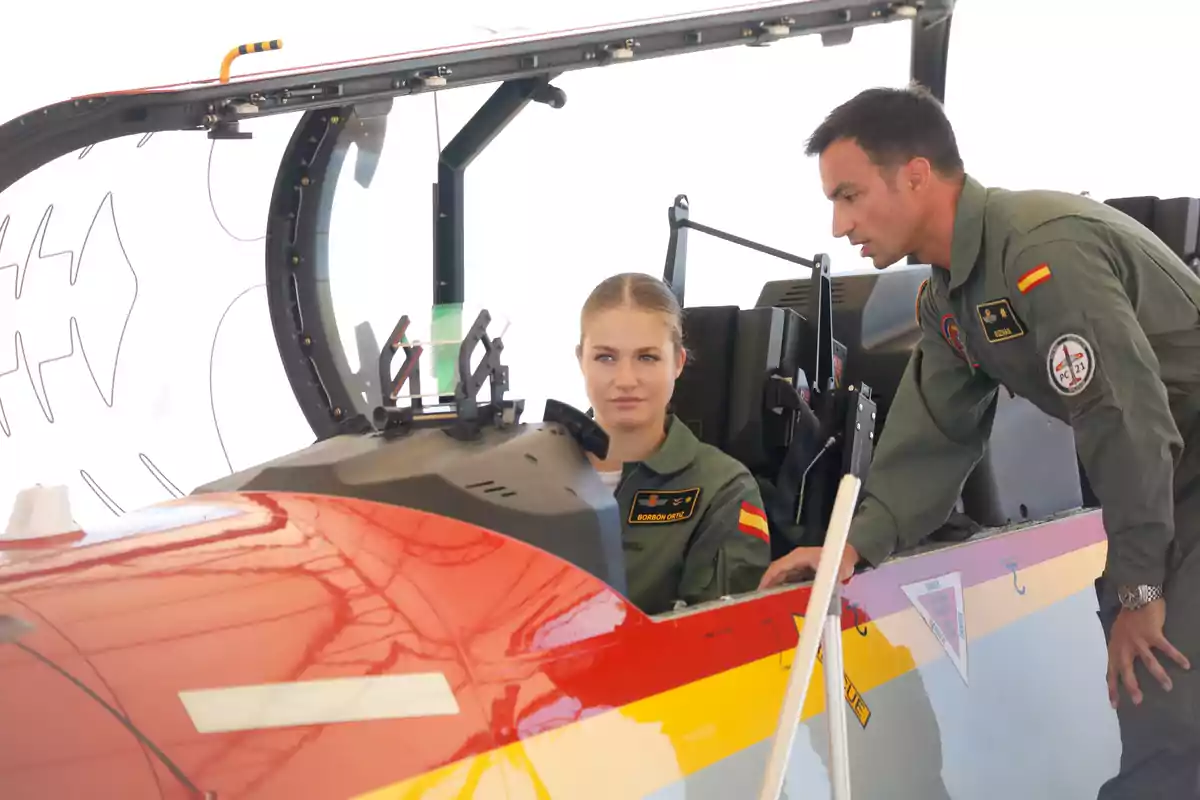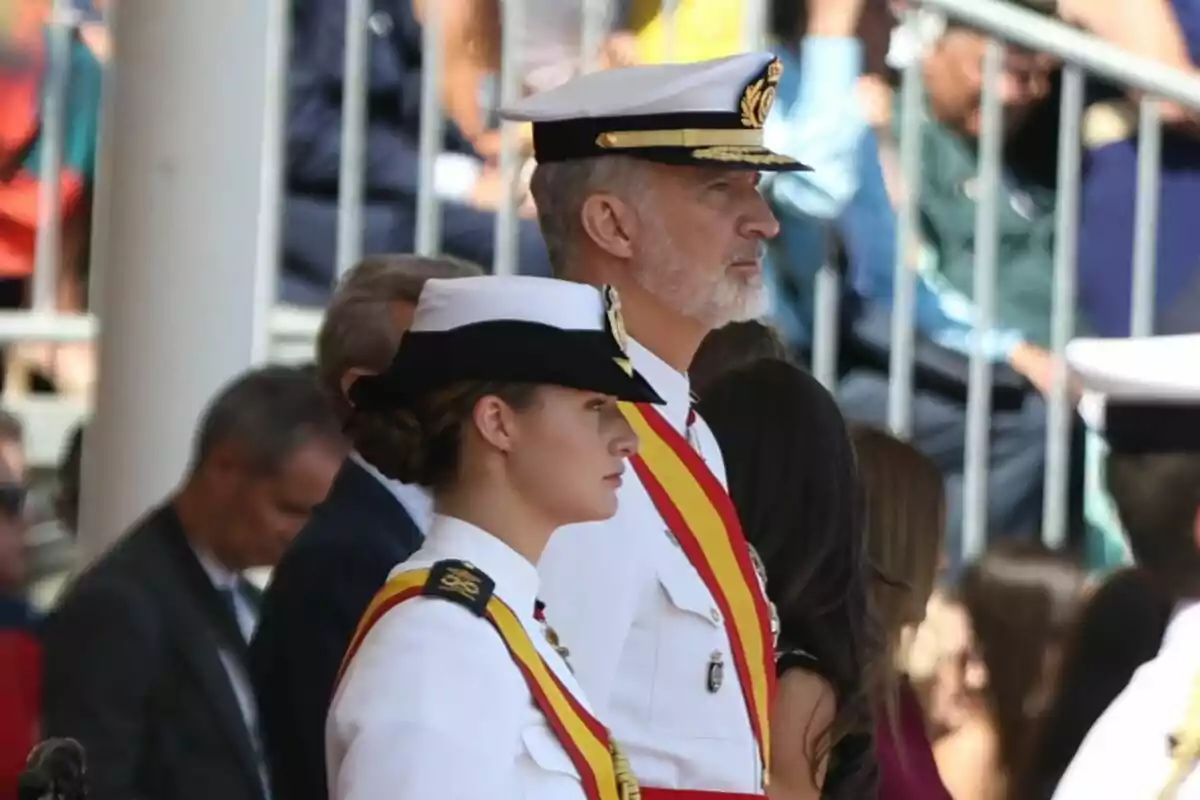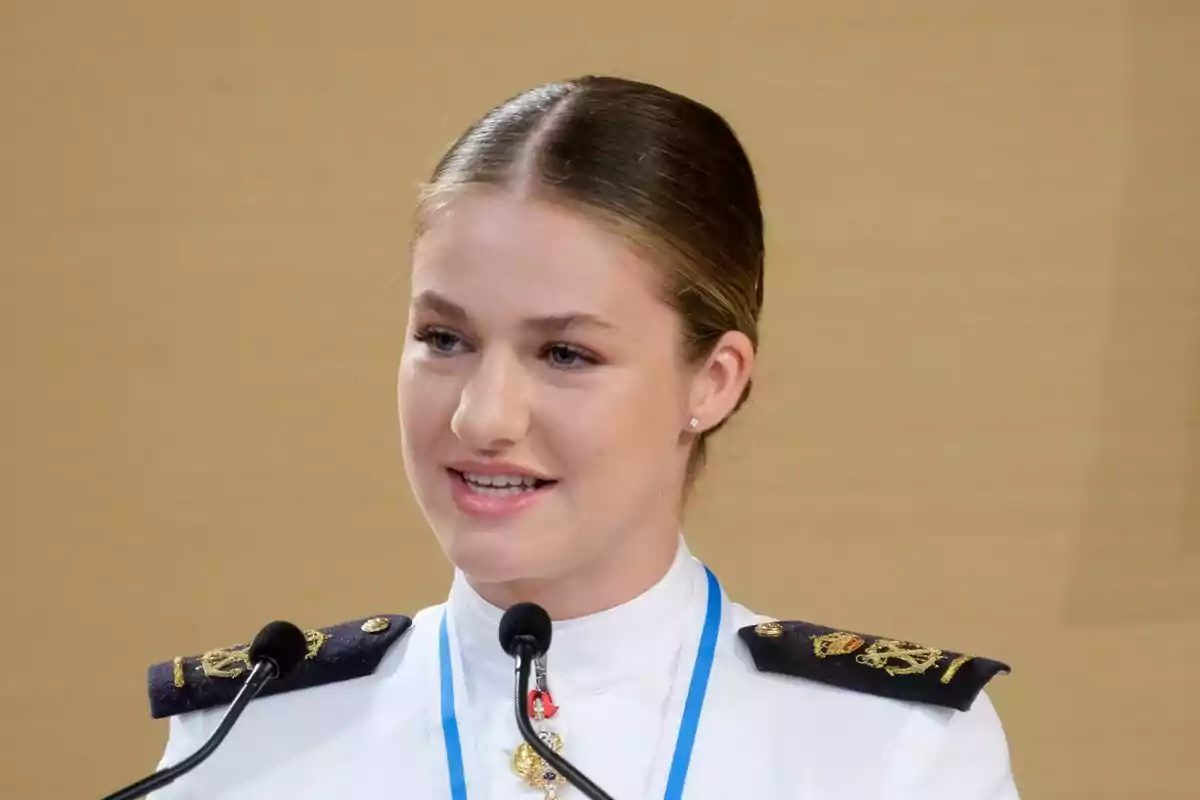Princess Leonor has taken a historic step by joining the General Air Academy, becoming the first future queen of Spain to receive military training as a pilot. Exposure to a demanding and highly visible environmentplaces her before a challenge that few young people could face with the same pressure.
The challenge combines technical learning, military discipline, and emotional management under constant public scrutiny. Leonor must adapt to a new context where any mistake could be judged by the media and society.

A demanding and unprecedented environment
The General Air Academy requires maximum focus, discipline, and precision in every maneuver, with no room for error. Future pilots learn to act under strict protocols, facing controlled risk situations that require constant focus and self-control. For any student, each exercise represents an intense challenge, but for the heiress, the pressure is heightened by public visibility and the expectations of an entire country.
Leonor must adapt to the added pressure of being continuously observed while performing tasks her peers took on by personal choice. The difference between internal motivation and inherited obligation multiplies the sense of vulnerability and emotional demand. Every step she takes at the Academy subjects her to scrutiny, making her training both a technical learning process and a psychological test.
Moreover, constant visibility amplifies any potential mistake and requires a perfect balance between focus, self-control, and confidence. Even small errors can be perceived as significant failures by public opinion and the media. This turns every day into a challenge where the technical and emotional aspects are closely intertwined.

Princess Leonor's "situational fear"
Psychologist Carmen Durang has issued a warning about the princess's training that could concern King Felipe, highlighting that Leonor faces intense situational fear. This emotion arises in new and demanding contexts where public exposure and expectations multiply the pressure on the young heiress. According to the expert, these emotions are completely natural, but they require careful and constant psychological preparation to manage them properly.
This is not a fear of flying, since she has traveled by plane on multiple occasions both on official and private trips, which proves her previous experience. Situational fear arises in new and demanding contexts where public exposure and responsibility increase the pressure. For Leonor, failure would not only be a technical mistake but a failure amplified by the media and the eyes of the country.
The difference between internal motivation and external pressure becomes crucial. Her peers chose this training out of vocation, while she faces an inherited duty. This way, each maneuver becomes a test of technical ability and emotional strength simultaneously.

Strategies to face the challenge
To face these challenges, experts recommend progressive training in simulators and accompanied flights that allow familiarization with the environment without immediate exposure. These techniques help reduce anticipatory anxiety and improve focus under pressure. The combined practice of mind and body prepares the young woman to respond effectively in critical situations.
Cognitive restructuring is also recommended, which consists of identifying negative thoughts and replacing them with positive and realistic affirmations. This technique fosters confidence, self-management, and emotional resilience, which are essential in highly demanding environments. In addition, breathing and relaxation training completes the process, helping to keep calm and focus.
Feeling fear is normal and necessary, since it reminds us of our vulnerability and humanity. Learning to interpret it as a signal and not as an enemy allows it to become an ally that prepares and protects against possible risks. Thanks to her previous training and past experiences, Leonor is prepared to face this historic challenge and emerge stronger both technically and emotionally.

